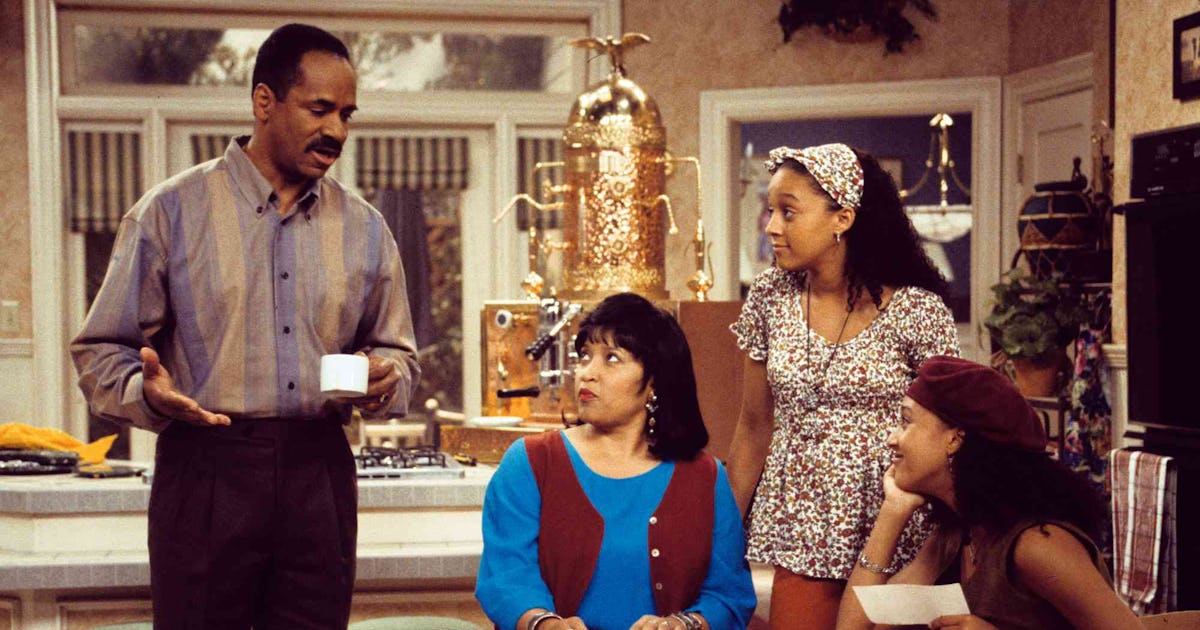
Television raised me. I imply, not actually; my dad and mom raised me — however tv had an actual hand in it. Possibly as a result of I used to be a chronically indoor child, or perhaps as a result of I used to be a younger, impressionable tween wildly important of personal dad and mom’ “oppressive” guidelines (possible somewhat of column A and somewhat of column B), I took appreciable curiosity within the parental characters on my favorite shows: how they reacted, taught, developed… and the way they tousled. And the dad and mom I beloved on TV tousled quite a bit.
Rewatching a few of my favourite reveals now, I noticed one thing: So lots of the reveals I grew up having fun with had chaotic (Felicity; Sister, Sister), absentee dad and mom (Sabrina the Teenage Witch) or, actually, no dad and mom in any respect (Party of Five). In their very own manner, I consider that these “unhealthy TV dad and mom” have been tradition’s passive manner of guiding and empowering millennials to make their very own decisions as we navigated and processed a veritable minefield of video video games, ’90s politics, and the highly effective pull of the (early) web.
Who have been they, and the way did they put their TV little children right into a TV-lifetime of TV remedy, and but allow us to — the younger, impressionable, Delias-clad viewers — come out higher for it? Let’s get into it.
Gail Leery, Dawson’s Creek
Whereas Joey, Pacey, Dawson, and Jen had their very own share of untamed messiness, Dawson’s mom, Gail Leery, comes out the gate chaotic on the WB series Dawson’s Creek. Performed by Mary-Margaret Humes, the glamorous native information anchor Gail is actually gallivanting round tiny Capeside, Massachusetts, along with her facet piece/co-anchor: taking him out for drinks, shopping for him fits, fornicating — you identify it — whereas the lads in her life (Dawson, and his unhappy however earnest dad, Mitch) sit in their very own denial for almost a full season of TV (that is a 90’s season of twenty-two episodes, of us — a very long time).
By the top of Season 1, each different character is aware of what is going on on; they’re simply looking for a solution to inform Dawson that may really get via to him. Dawson’s associates ultimately reach notifying Dawson of his mother’s attractive double life, and the Leerys get unceremoniously divorced in Season 2.
The Lesson
Dawson’s neighborhood by no means gave up on sharing these onerous truths with their good friend: a simple lesson ensuing from unhealthy parental conduct, if there ever was one.
Ray Campbell and Lisa Landry, Sister, Sister
The parental chaos is actually within the premise of WB’s Sister, Sister. Initially, what sort of Miss Hannigan-bullsh*t is it to separate similar twin siblings? Do individuals try this? And past that, what sort of parental strangers assume, “Hey, my daughter noticed one other lady who appears to be like similar to her on the road — mayyyyybe we should always all transfer to the suburbs collectively?”
I might personally place extra blame on Ray (performed by Tim Reid), who willingly let wild-ass Lisa (performed by the enduring Jackée Harry) and Tia into his demure house with out doing somewhat recon first, however all of them appeared to make it work. Tia and Tamera went to school, bought boyfriends, and even repaired some huge familial rifts over the present’s six seasons.
The (Very Millennial) Lesson
When dad and mom take dangers, their kids (us) are higher and extra profitable for it. Belief!
Each Dad or mum on Felicity
In a show about time-traveling college students with educational ennui, perhaps it is not so shocking that each father or mother is a whole trainwreck. The place to even start? We have Dr. Edward and Barbara Porter, who’re in deep denial about their loveless marriage and codependency on their solely baby (a lot in order that Dr. Ed actually follows his daughter to New York, crashing near her dorm whereas he ignores the upcoming finish of his marriage).
We’ve Ben Covington’s dad, Andrew, a duplicitous conman fighting alcoholism whereas manipulating the feelings of each Ben and his mom, who’d been abused by the man for many years (it is a testomony to Jason Ritter’s allure that I nonetheless just like the man after his Felicity stint). Then there are Megan Rotondi’s dad and mom, who’re simply wealthy a$$holes, and Sean Blumberg’s dad and mom, who’re low-class scammers. The icing on the cake: Elena’s dad’s complete character arc in Season 3 is his disinterest in his daughter’s educational achievements.
The Lesson
Per the world of Felicity, having unhealthy dad and mom who’re each clingy and absentee creates very engaging kids with unbelievable hair, ones who ultimately discover their calling in life by studying from the errors of their elders. Not a foul lesson (except, in fact, you are Elena pre-time soar, and die in a automobile crash — spoiler alert).
Diana Spellman, Sabrina The Teenage Witch
Not solely is she mortal (ugh), however Diana Spellman, mom of Sabrina Spellman, is all the time away on an archeological dig in Peru, leaving her beloved treasure of a daughter with two kindly but harmful training witches. Are the witches household? Sure. However do they usually rope a minor into harmful acts of witchcraft? Additionally sure.
The Lesson
Even earlier than STTW, the absentee or deceased mom was form of a TV/Disney trope; right here, it was a lesson that when mortal mothers are away, the witches will play — so, permission to get artistic and let our little tween freak flags fly!
No one, Social gathering of 5
The 5 Salinger siblings actually don’t have any dad and mom, what with them tragically being killed in a drunk driving accident in downtown San Francisco. Because of this, the 5 kids — aged from 24 years all the way down to 1) — should run their dad and mom’ enterprise collectively. It is a really insane premise, however an empowering one; for my center faculty self, it was like watching adults play home… however for actual.
The Lesson
Although the present rapidly goes off the rails in a practice of after-school-special-like premises, it makes younger viewers really feel that, with sufficient siblings, associates, and flannels, you may actually do something you place your thoughts to.
The Massive Takeaway
The ’90s have been a loopy time, and navigating them as a younger grownup was even crazier. As I watch these reveals now, I am actually impressed by how these messy parental figures slipped classes (largely undetected) into my younger and impressionable TV-viewing self. As if nearly by their very existence, they have been decided to show us youngsters life classes with a stern but mild cinematic hand. An actual do-as-I-say-not-as-I-do scenario, you recognize?
Trending Merchandise











